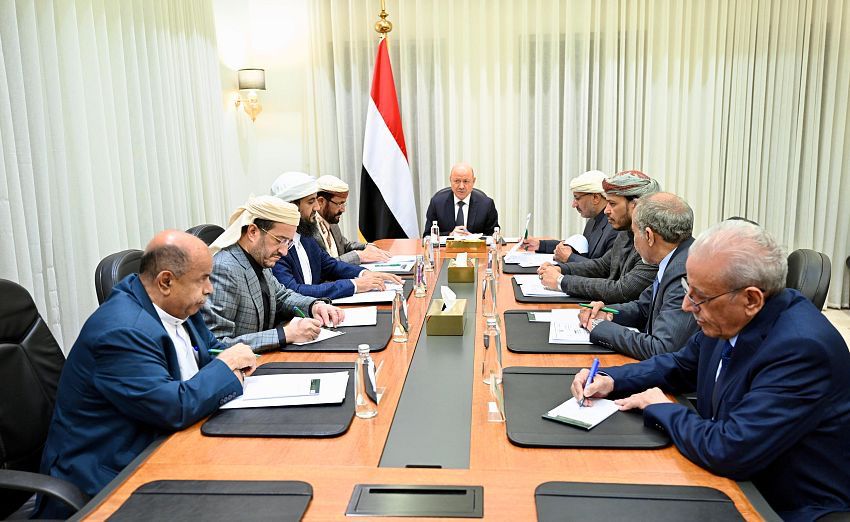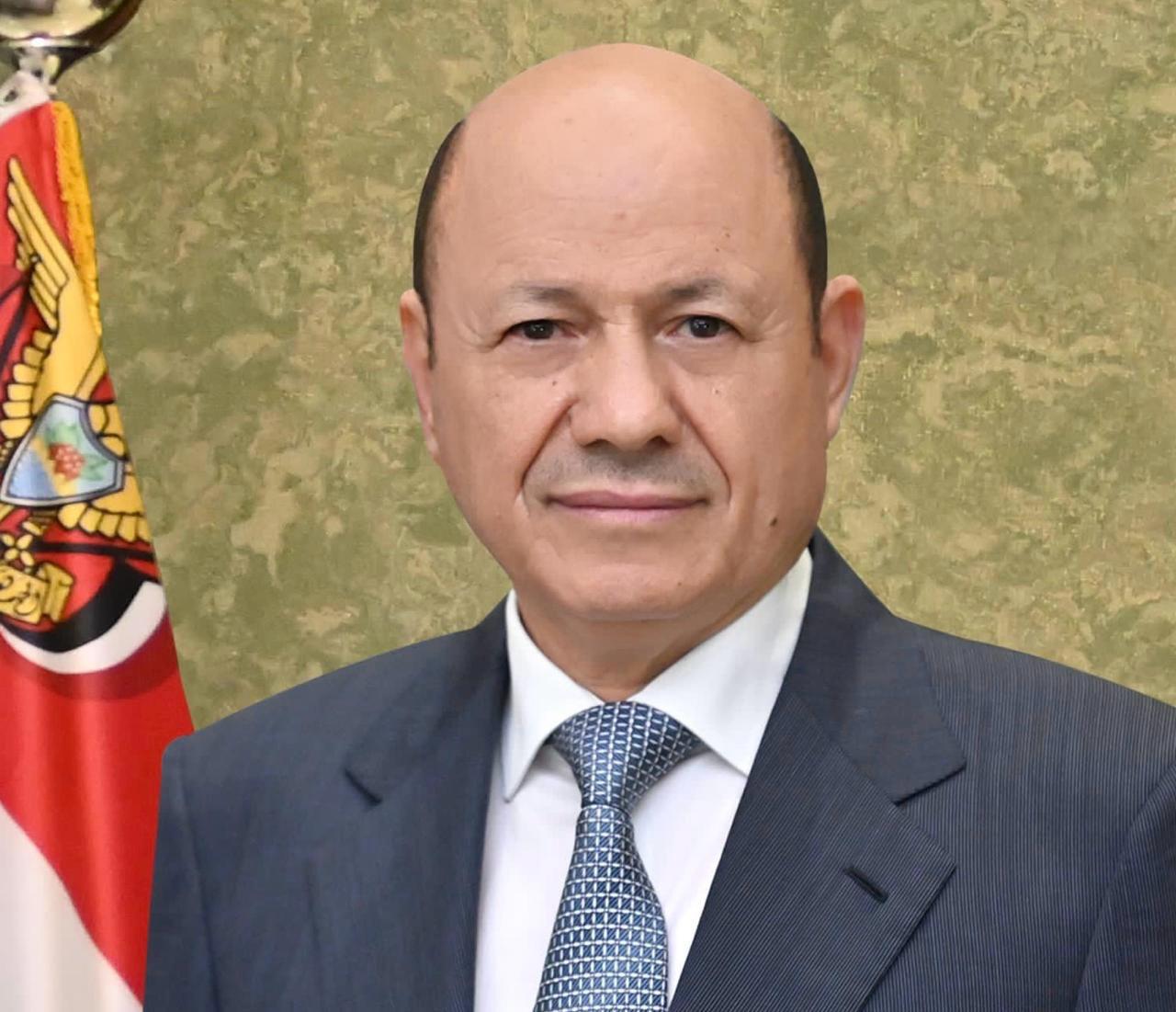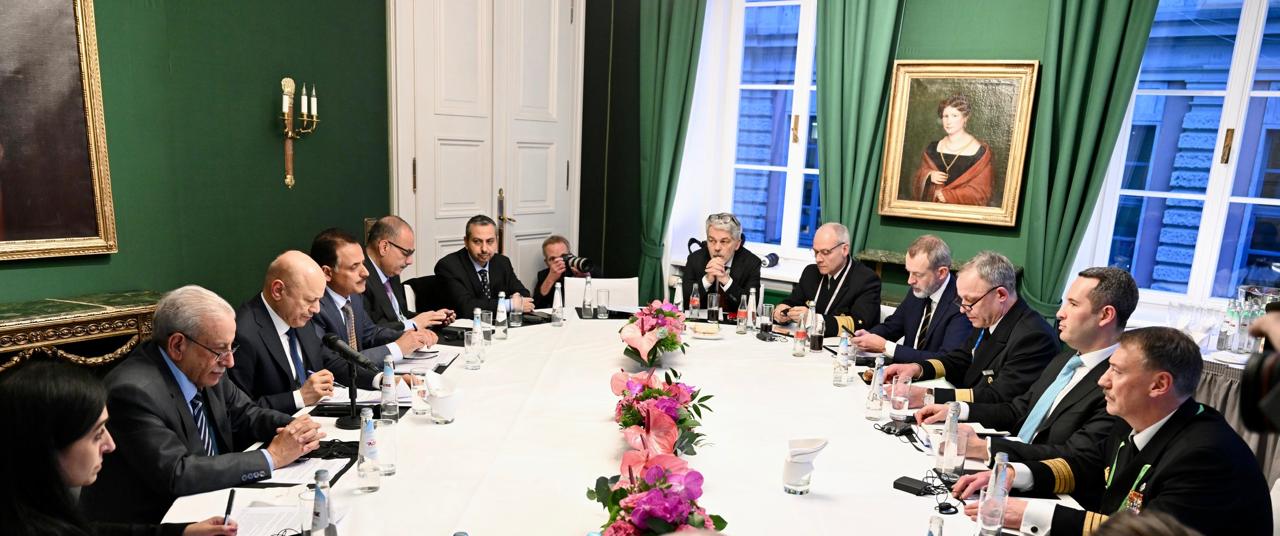
President Al-Alimi: Ending Houthi Terrorism Requires International Community to Redefine the Group as a Permanent, Not Temporary, Threat
Munich
His Excellency Dr. Rashad Mohammed Al-Alimi, President of the Presidential Leadership Council, renewed his call for the international community to enhance its strategic partnership with the government across all sectors, including defense, to establish a “Yemeni-international deterrence equation” against Houthi terrorist behavior.
The President emphasized that such an equation would enable both the government and the international community to counter Houthi terrorism and force the group into a credible political process leading to a comprehensive and lasting peace.
Speaking at a NATO-hosted roundtable on maritime security, President Al-Alimi stressed that ending the Houthi threat requires a strategic defeat that strips the group of its sources of power: money, land, and weapons.
He added, “Deterring the Houthis requires, at the very least, making them feel the seriousness of the international community in curbing their dominance and growth. This demands a long-term investment in strengthening the Yemeni state and its legitimate authority.”
The President called on the international community to redefine the Houthis as a permanent threat rather than a temporary one, warning that even if the militia halts its attacks temporarily, it remains ready to resume its destabilizing terrorist operations in any future regional conflict cycle.
He urged the international community to apply maximum pressure on the Houthis instead of offering incentives, stating that force is the only language they understand.
President Al-Alimi reaffirmed the commitment of the broad national coalitionrepresented by the Presidential Leadership Council to continue Yemenis’ existential battle against Houthi fascism, which rejects peace, partnership, and coexistence.
The President criticized the flawed international response to Yemen’s escalating threats, stating that the issue is not a lack of resources or means, but a misguided collective strategy.
He explained that the international community’s approach toward the Houthis has been based on three misconceptions: seeing the Houthis as a temporary threat, believing their terrorist actions are linked to Gaza, and focusing on militarizing the Red Sea instead of shifting the balance of power on Yemeni land.
In this context, He emphasized that targeted offensive strikes had limited tactical impact and no strategic effect, as offensive operations failed to change Houthi behavior, while defensive operations at sea did not sufficiently secure shipping routes.
The President expressed regret that some influential countries have responded to Houthi blackmail by continuing to offer incentives instead of applying pressure.
President Al-Alimi stressed that any geopolitical formula for regional stability must include: implementing the two-state solution by supporting the Arab Peace Initiative, backing the Palestinian people’s struggle, pressuring Israel to cease its aggression, and ending Iran’s destabilizing influence in the region, particularly in Yemen, which has become central to Iran’s national security strategy.
His Excellency warned that after setbacks in Syria and Lebanon, Iran is doubling down on its investment in the Houthis, enhancing their military capabilities to drain Arab resources, dominate key waterways, and impose a “denial of access” strategy in Bab al-Mandeb and the Suez Canal, alongside its existing presence in the Strait of Hormuz.
The President described Yemen as the key battleground in altering Iran’s regional behavior, stating:
“The more the Houthis are overlooked, the more Tehran will continue its destructive role. Conversely, the more the Houthis are weakened, the more the region will be ready for major political settlements and lasting security.”
President Al-Alimi highlighted the deep security interconnection between Yemen and the Horn of Africa, stating that recent events have proven them to be a single geopolitical space. He added, “Unfortunately, it seems that terrorist and criminal groups understand this reality better than the states themselves.”
He pointed out that Houthi terrorist activities have had a direct negative impact on the security of the Horn of Africa, as evidenced by the resurgence of piracy since late 2023, particularly after the militia successfully seized the commercial vessel Galaxy Leader. He also noted that the Houthis have become an inspiration for Al-Qaeda and ISIS factions in Somalia, further strengthening cooperation between the Houthis and Al-Shabaab—a group that aspires to one day disrupt navigation in the Indian Ocean, just as the Houthis have done in the Red Sea.
His Excellency further highlighted this by pointing to the Houthis’ intensified arms smuggling to Somalia, noting that a significant portion of these weapons is either developed in Iranian-backed Houthi workshops or transported from Iran to Yemen before being moved to East Africa. Additionally, he warned that the Houthis have become involved in human trafficking, facilitating and overseeing migrant smuggling routes to the Gulf and Europe, or even recruiting migrants within Yemen.
He lamented that the international community has failed to recognize the tight security linkage between Yemen and the Horn of Africa, asserting that stabilizing the Red Sea region starts from its southern shores, requiring a comprehensive security framework on both sides of Bab al-Mandeb.
He stressed that Yemen and the Horn of Africa represent the greatest test todayfor establishing a regional and international security framework that would end the state of fragility and power vacuum in the Red Sea and Bab al-Mandeb region.
He concluded by urging the international community to adopt a broader strategic perspective on Yemen’s ties with the Horn of Africa, stating:
“If this is achieved, supporting the Yemeni state will not only be vital for deterring the Houthis and countering Iran but will also become a fundamental component of a long-term strategic investment in regional stability.”
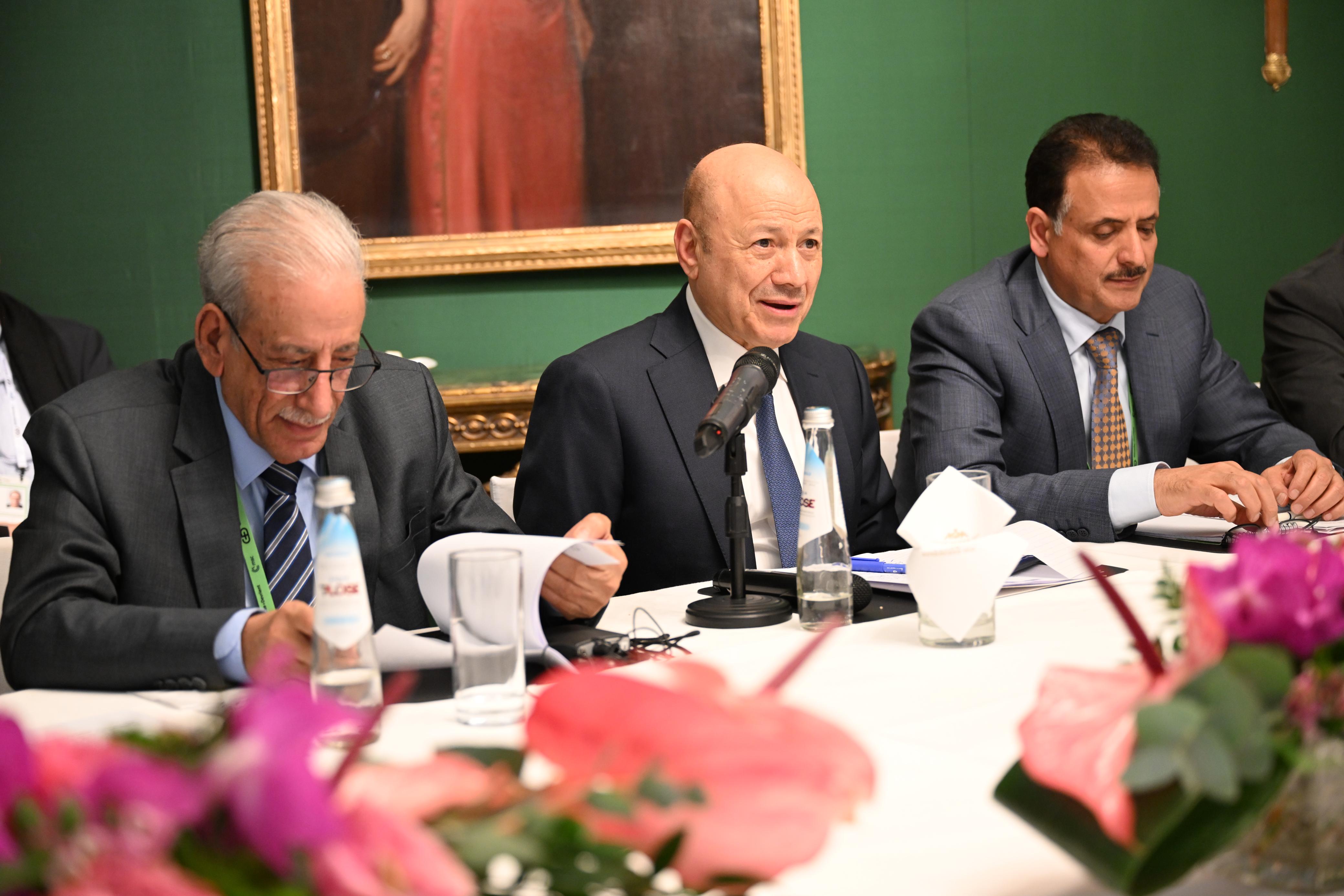
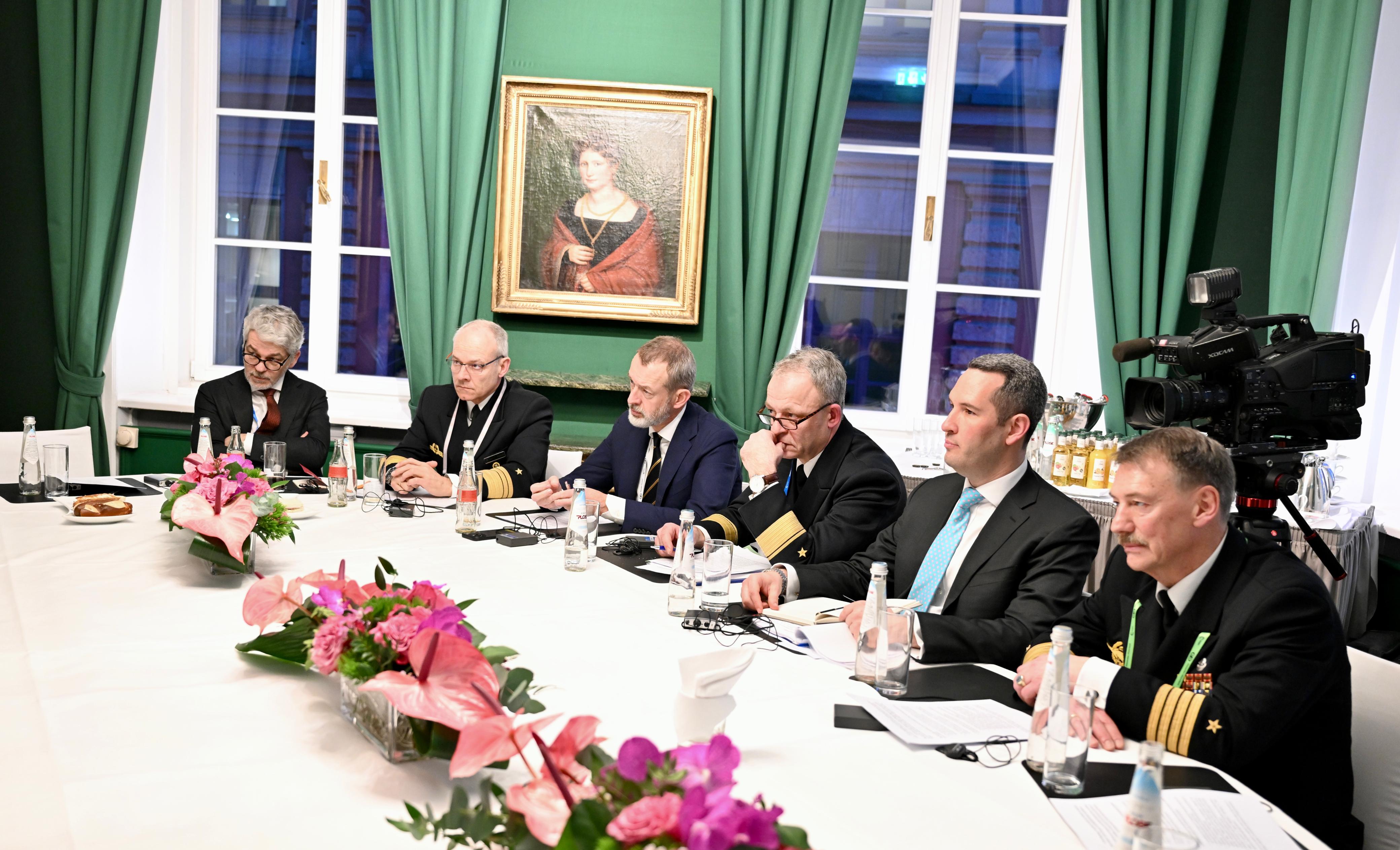
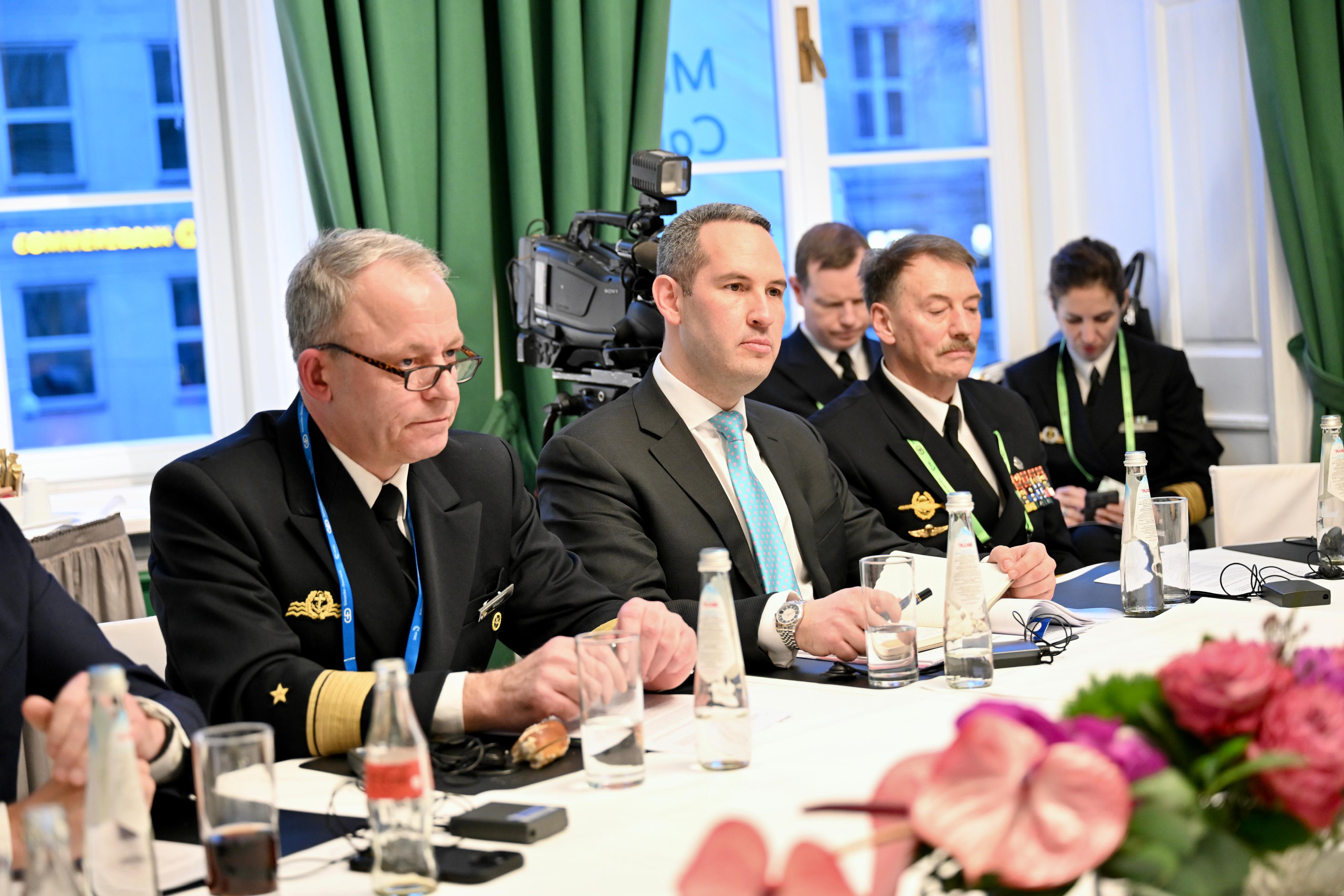
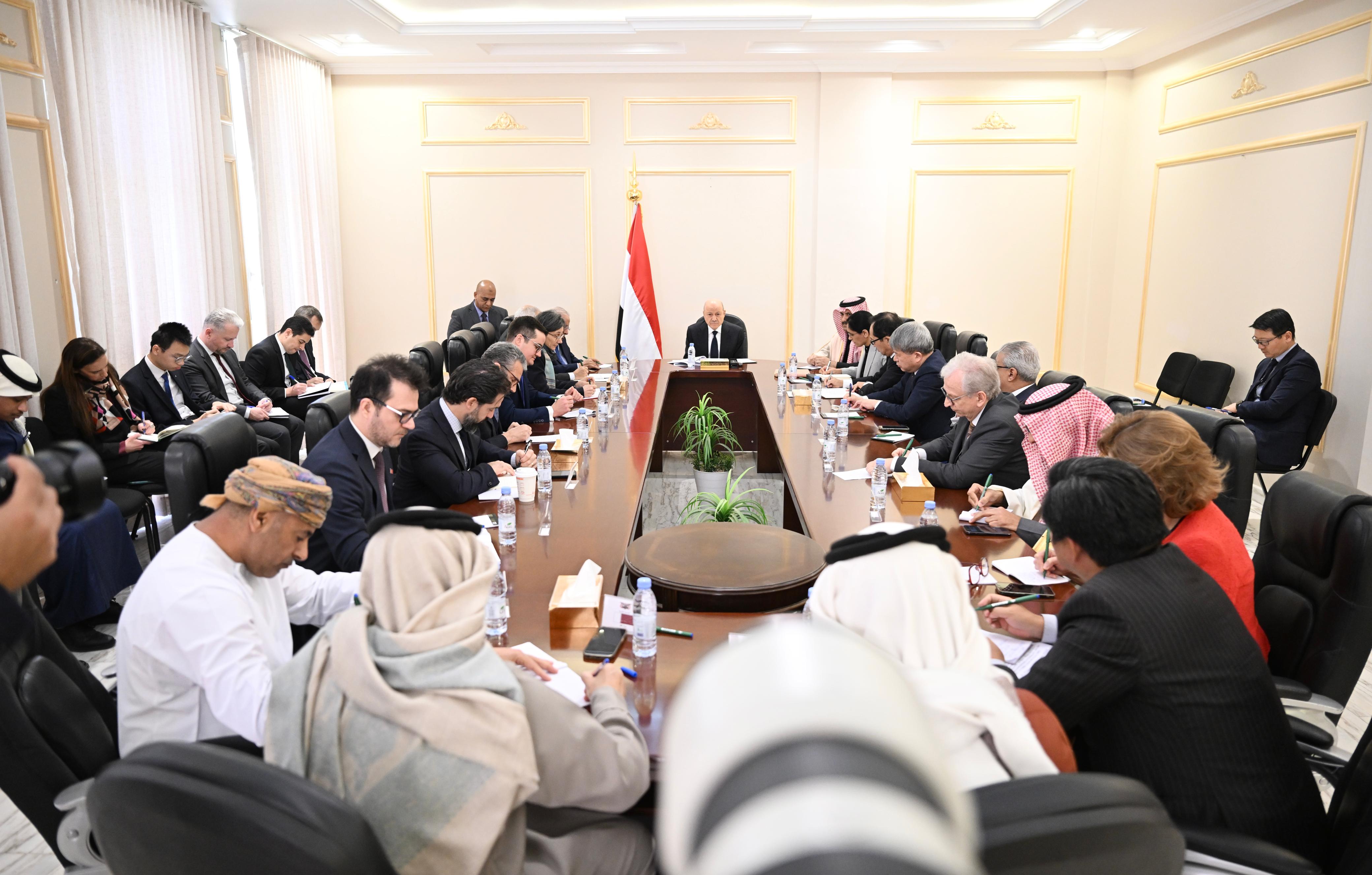
President Al-Alimi: Developments on Ground Are Promising and Refute Claims of a Vacuum and Worst-Case Scenarios
His Excellency President Dr. Rashad Mohammed Al-Alimi, President of the Presidential Leadership Council, said that state institutions are making tangible progress in unifying security and military decision-making

